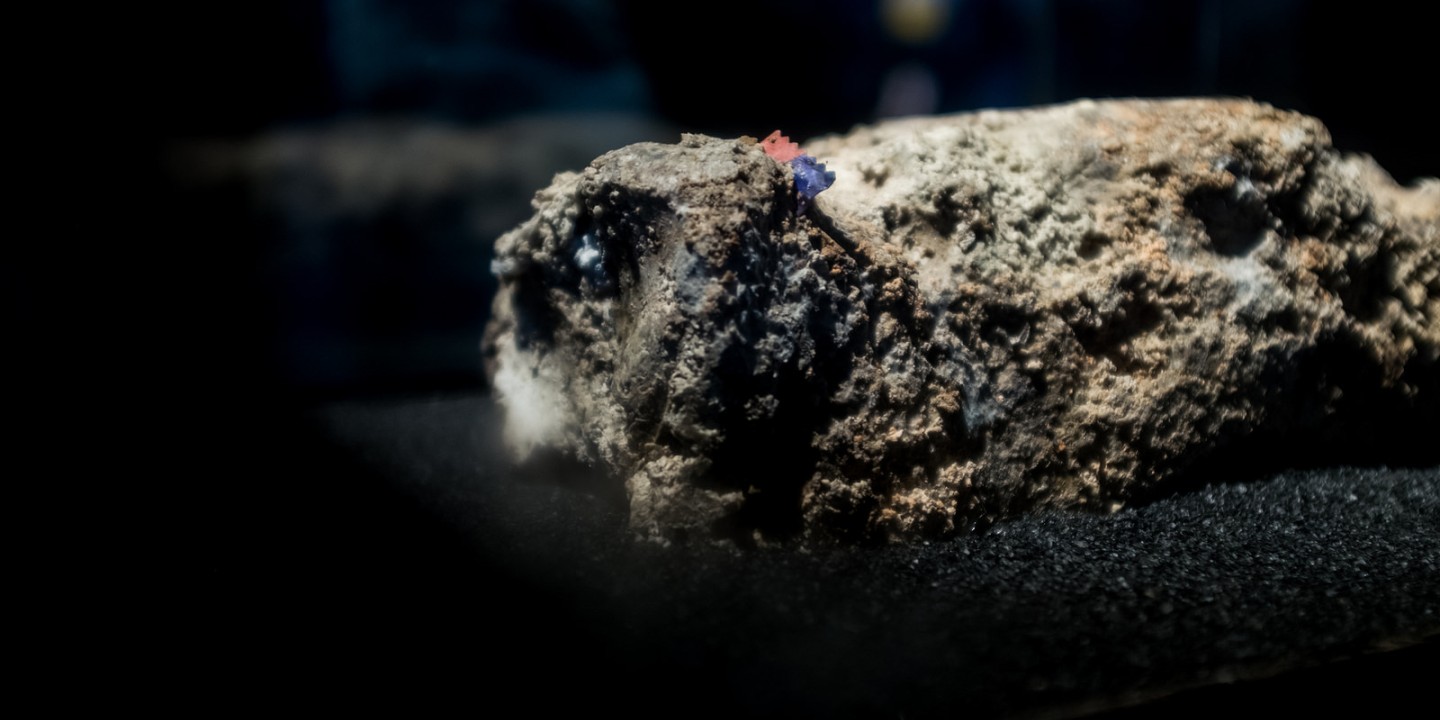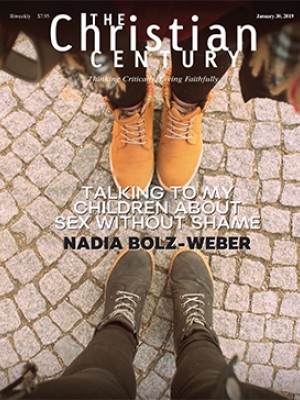
Not long ago the water department found an 800-foot fatberg blocking an East London sewer. Fatbergs form when household items (flushed down toilets) congeal with grease and fat (washed down sinks). The Museum of London placed a slice of the fatberg on display. Alternative energy companies are talking about the possibilities for biofuel.
On average we each create 64 tons of landfill waste per lifetime. That’s a lot of footprint. It’s not surprising we resort to euphemisms. One local dump I know describes itself as a “community amenity facility.” Waste isn’t just a practical issue; it represents everything in our lives we haven’t got a place for, don’t know what to do with.
Read our latest issue or browse back issues.
Most people regard parts of their personal histories as waste—that year at college taking the wrong course, that relationship with someone who turned out to be a complete liar, that apprenticeship under a bullying swindler. A lot of people have parts of their own personality they’ve never understood what to do with—useless skills, uncontrollable desires, destructive habits. Such waste clogs up our memories and our self-respect more thoroughly than a fatberg blocks a sewer.
When we grieve the loss of a loved one or see a yearned-for project turn to dust, one word haunts us more than any other—the waste of it, terrible and crushing. When a person of faith seeks to grow in wisdom and grace, it’s among these memories, habits, and disordered relationships that they’re looking for change, healing, peace.
I spoke with a middle-aged man about his struggles with anxiety, depression, and obsessive-compulsive disorder. A whole swathe of his life seemed like a waste. His self-esteem was low, and his children had come to see him as a burden. So when he called his son and said, “Look, I’m feeling really troubled by what I’m seeing happening in a garage I pass as I walk to work,” his son’s first reaction was to change the subject.
But the man was a dog with a bone and wouldn’t let it go. “Look, I’m convinced that garage is becoming a depository for stolen goods. There’s all sorts of vehicles emptying materials there, but it’s always late at night when I’ve stayed after hours at work. I’ve seen white powder, and just last week I saw a box of something that looked like knives. One of the delivery drivers spotted me peering inside and used his phone to take a photograph of me and told me to mind my own business.”
His son grew alarmed. “Dad,” he pleaded, “don’t get involved. You could be putting yourself in danger. Just take another route home from work. You know what you’re like. You’re just fixating on this garage and losing sleep and making yourself ill again.” It was a familiar pattern. His children would always treat him like a hospital case, trying to take away the focus of his attention and telling him to chill out.
But something new happened at work. He was asked to name a few people who could offer feedback on his performance after working alongside him. To his surprise, the ensuing report was extraordinarily positive. “He is so conscientious,” it said. “His attention to detail is remarkable,” it continued. “He is willing to keep investing in people and issues long after most colleagues would have given up and turned to easier challenges, and in the end he reaps results, and it earns him the respect and admiration of all his colleagues.” For the first time that he could remember, somebody—in fact, almost everybody consulted—saw him as a blessing and not a burden. All those characteristics that had so wearied his children were now, in their proper setting, seen as priceless and vital. Waste had been turned into fruitfulness.
The last time I saw him he said, “You know, I think I’ve finally plucked up the courage to call a helpline and report that garage. I don’t walk past it anymore, so I can’t see how they could pin the disclosure on me. But I still wake up in the night thinking it’s wrong and wondering how many lives have been put in danger by those drugs and those weapons.” He also said, “I’ve started saying to my children, ‘I’m just telling you what’s on my mind, because we’re family. I’m not asking you to fix it or keep me out of danger, I’m just telling you.’” He was like a different person.
All four Gospels tell the story of Jesus feeding 5,000 people in a deserted place. It seems the crowd is so captivated by his teaching that almost no one brings any food with them. The disciples distribute enough and more to everyone. And there are 12 baskets left over. Why collect the surplus, in a hot country where food was hard to store or transport?
The story portrays the way, in God’s future, nothing is wasted. We can make mistakes, like the crowd not bringing anything to eat, or us pouring oil down the sink. We can be selfish, like the crowd not sharing what they had, or us unwisely disposing of our rubbish. We can be foolish, like the disciples being slow to trust in Jesus when they’ve seen him do amazing things before.
For most people, the real grief and losses and failures can’t be flushed away. They linger and fester. The promise of faith is all about turning metaphorical fatbergs into fuel. The challenge of faith is to believe that nothing—nothing whatsoever—is finally wasted.
A version of this article appears in the print edition under the title “When nothing is wasted.”






